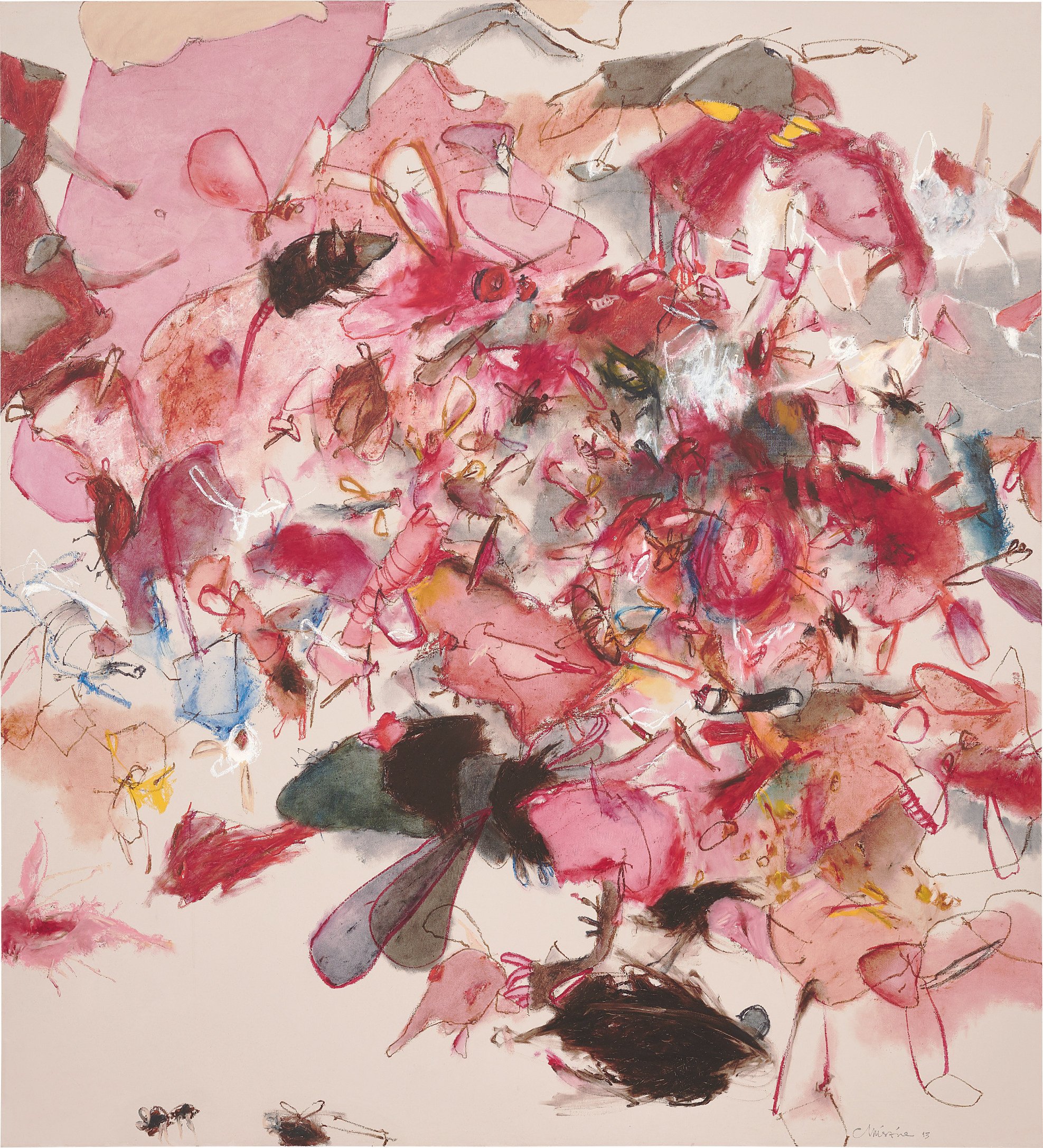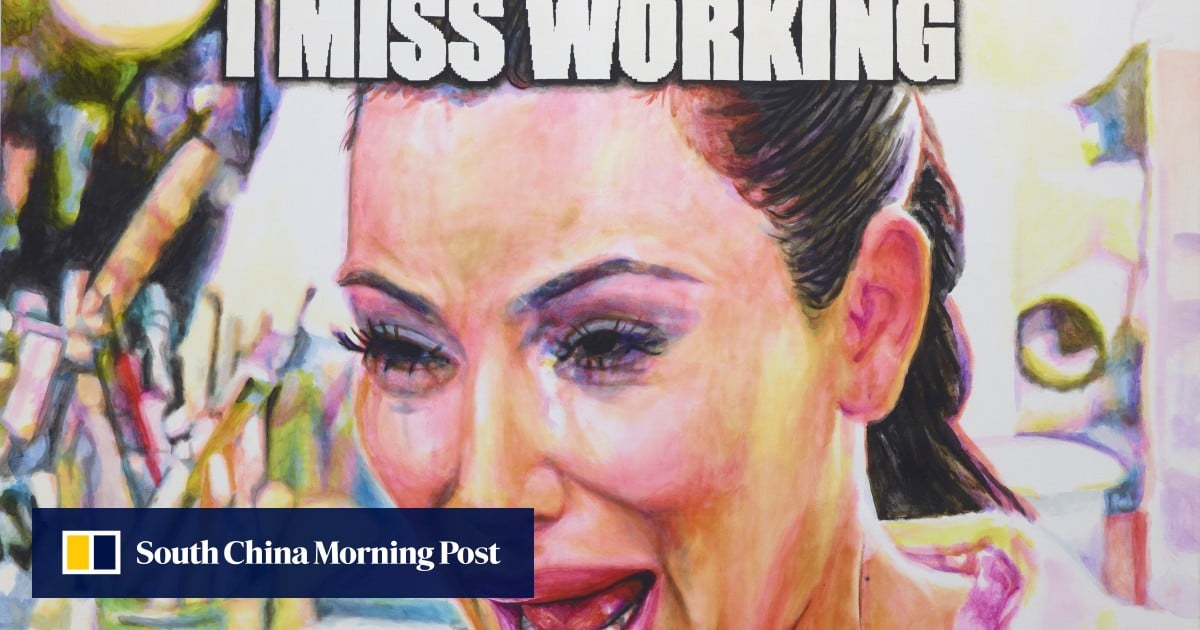For centuries women have been relegated to the margins of the art establishment’s narrative, reduced to being merely muses or models, their worth determined by male artists. Historically therefore, there has been a startlingly drastic underrepresentation of the role women have played in the evolution of art.
“They were just never noticed,” says Lee Meiling, head of 20th century & contemporary art at Phillips Asia, who says it’s taken decades, but the balance has finally shifted. Since the 1960s, when the Feminist Art movement hit, women have slowly emerged from the shadows. “Now in the 21st century there is a strong demand for building a more diverse and inclusive environment across all industries,” says Lee, noting that the art world is no exception. “Women and individuals from diverse backgrounds are entering the spotlight.”
7 of the richest artists alive: net worths, ranked – but who’s a billionaire?
7 of the richest artists alive: net worths, ranked – but who’s a billionaire?
Female painters in particular are garnering increasing attention from collectors, curators and institutions worldwide, their work often setting records at auction. “Women are as brilliant as male artists, they bring a distinct perspective and life experience to interpreting their thoughts and inner feelings [which inspires] their work,” says Lee.
Here then are six women painters who are breathing new life into the age-old medium of painting.
1. Christine Ay Tjoe

Ay Tjoe is often described as a painter, but the Indonesian artist insists that her practice is better described as drawing. At art school, she studied an array of printmaking techniques including drypoint and intaglio, as well as drawing. At the heart of her works is the use of lines – whether they are gestural strokes, faint sketches or aggressive scribbles.
In some cases, she uses her hands to rub and scratch oil sticks onto her works. Ay Tjoe’s canvases often contain explosive marks amid bold splodges of colour, giving them a raw intensity that has them almost quivering with emotion. While the canvases appear abstract, traces of plants, animals and even people can be deciphered upon closer inspection. She often plays with opposing ideas: dark and light, form and emptiness, freedom and restraint.
2. Loie Hollowell
American artist Hollowell transforms the female form into bodily landscapes, fecund and saturated in colour. Deeply autobiographical, her work explores sexuality, pregnancy, birth and motherhood. The sensuous sculptural paintings that result blur the boundaries between abstraction and figuration, using a lexicon of repeated forms including mandorlas (almond-shaped halo-like lights), lingams, orifices and orbs.
Her vivid canvases seem to almost radiate, pulsate and protrude out into space, having a visceral impact as they capture deeply intimate physical experiences ranging from orgasm and menstruation to going through labour. Adding to the intensity is the fact that the scale of Hollowell’s paintings often directly correlates to the size of parts of her own body including her head, breasts, groin or her full figure.
Become part of the art: 6 pieces inviting audience participation in Hong Kong
Become part of the art: 6 pieces inviting audience participation in Hong Kong
3. Yayoi Kusama
Yayoi Kusama’s pumpkins and polka-dots have proved hard to ignore in Hong Kong, the Japanese artist the subject of M+’s first blockbuster international exhibition, which wrapped in May 2023. Kusama was born into a wealthy family in rural Japan but had a traumatic childhood and started experiencing hallucinations at a young age. Art became a coping mechanism and a vehicle to express her visions. She arrived in New York at the age of 27 with only a few hundred dollars sewn into her dresses.
Despite suffering an impoverished existence, struggling with her mental health and being dwarfed by her male peers, Kusama persevered and has now achieved near-mythic status in the art world. In New York, she began obsessively painting veiling canvases with a repetitive web of intricate marks called infinity nets. She once described her immersive process in her autobiography: “I would cover a canvas with nets, then continue painting them on the table, on the floor, and finally on my own body. As I repeated this process over and over again, the nets began to expand to infinity. I forgot about myself as they enveloped me, clinging to my arms and legs and clothes and filling the entire room.”
4. Wangechi Mutu
Kenyan-born American artist Mutu’s paintings are populated with formidable female creatures which are often hybrids of human bodies and those of wild animals and plants. She draws on folklore and myth, which she intertwines with powerful socio-historical references. Mutu first shot to fame in the late 90s for her fantastical collage-based work made with affordable found materials.
She is still perhaps best known for culling images from a diverse array of sources including glossy fashion titles, pornography, anthropological texts and medical illustrations, and combining these with delicate paintings. She also often incorporates unusual materials including tea, synthetic hair, Kenyan soil or feathers, each loaded with cultural significance. Since her early days, Mutu has cast a critical eye on the ways in which different cultures have been unfairly judged and classified. Her paintings also confront racism and the violence and oppression faced by women.
Arnold unbound: 6 best photos from the new Schwarzenegger coffee-table book
Arnold unbound: 6 best photos from the new Schwarzenegger coffee-table book
5. Christine Wang
We often spend just a few seconds glancing at memes as we scroll through messages on the small screens of our phones, but in the hands of American activist-artist Wang, these images are blown up to monumental scale and have the capacity to stop you in your tracks. Almost overwhelming in size, they hit viewers with harsh truths about urgent topics such as climate change, plastic pollution, racism and militarism.
Using a combination of acrylic and oil paint, she creates near-photorealistic images which rely on dark humour to provoke immediate self-reflection in viewers. She is brutal in her criticism of celebrity privilege, tearing down idealised figures such as Kim Kardashian and Leonardo DiCaprio in her work. She also taps into more personal concerns that everyone can empathise with including anxiety, isolation, uncertainty and fear.
6. Anna Weyant
To say that New York-based, Canadian-born artist Weyant has enjoyed a meteoric rise to the top would be an understatement. Discovered on Instagram at the age of 27, her early canvases went for a couple of thousand dollars but now a single work can fetch over a million dollars at auction. She has made headlines, not only for dating Larry Gagosian, one of the most powerful gallerists in the world, but also because she was the youngest artist he’s ever signed.
Her artwork also continues to garner praise. The Wall Street Journal has dubbed her a “millennial Botticelli” for her moody portraits of the female form. Blending photorealism with elements of surrealism, Weyant often uses a muted palette of sepia tones. Her subjects range from still lives of flowers and dollhouses to busty wide-eyed women in lingerie. Myriad sources influence her work ranging from Dutch painters such as Frans Hals and Judith Leyster, to more contemporary names.

